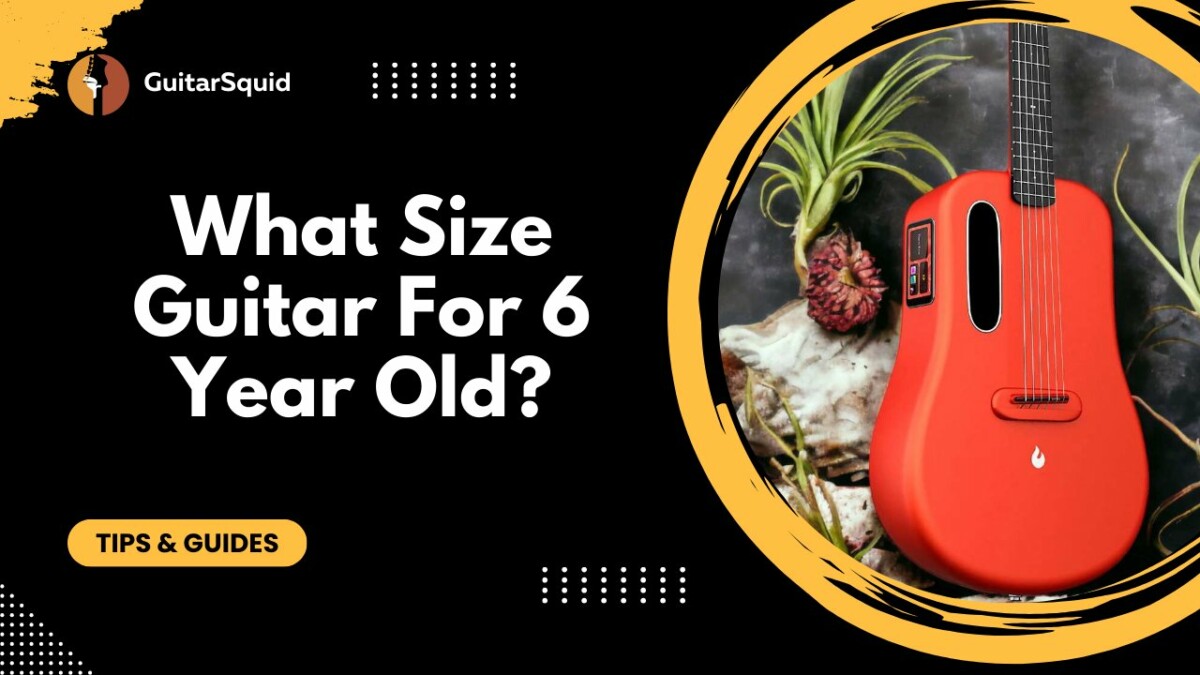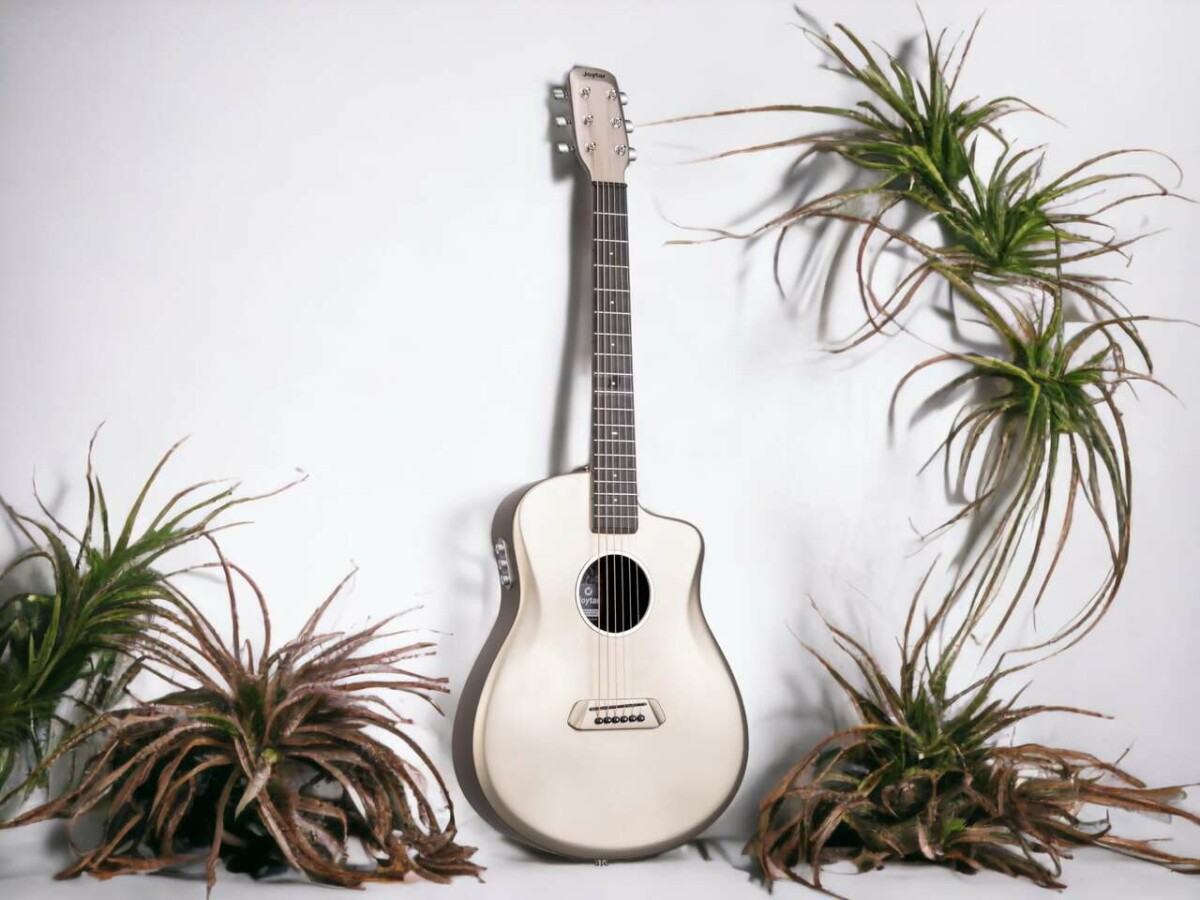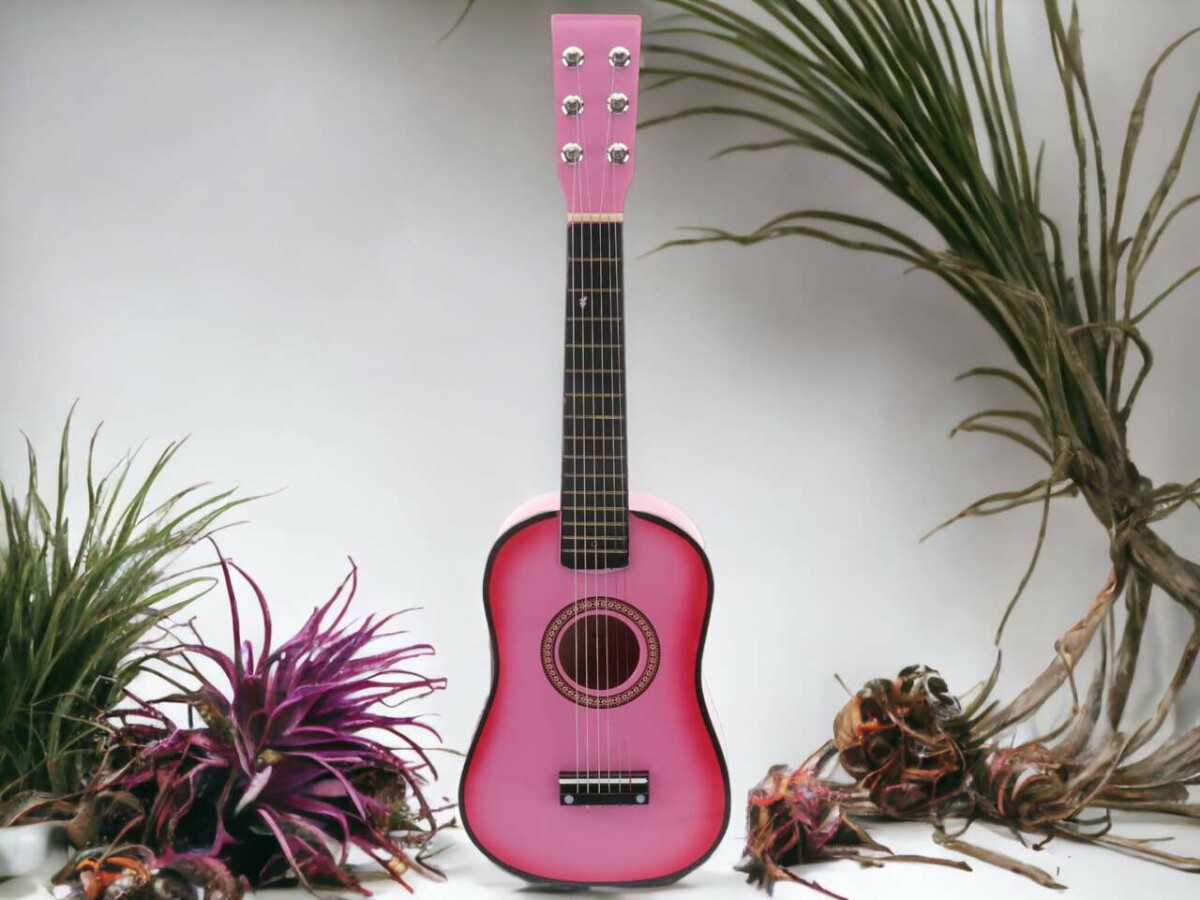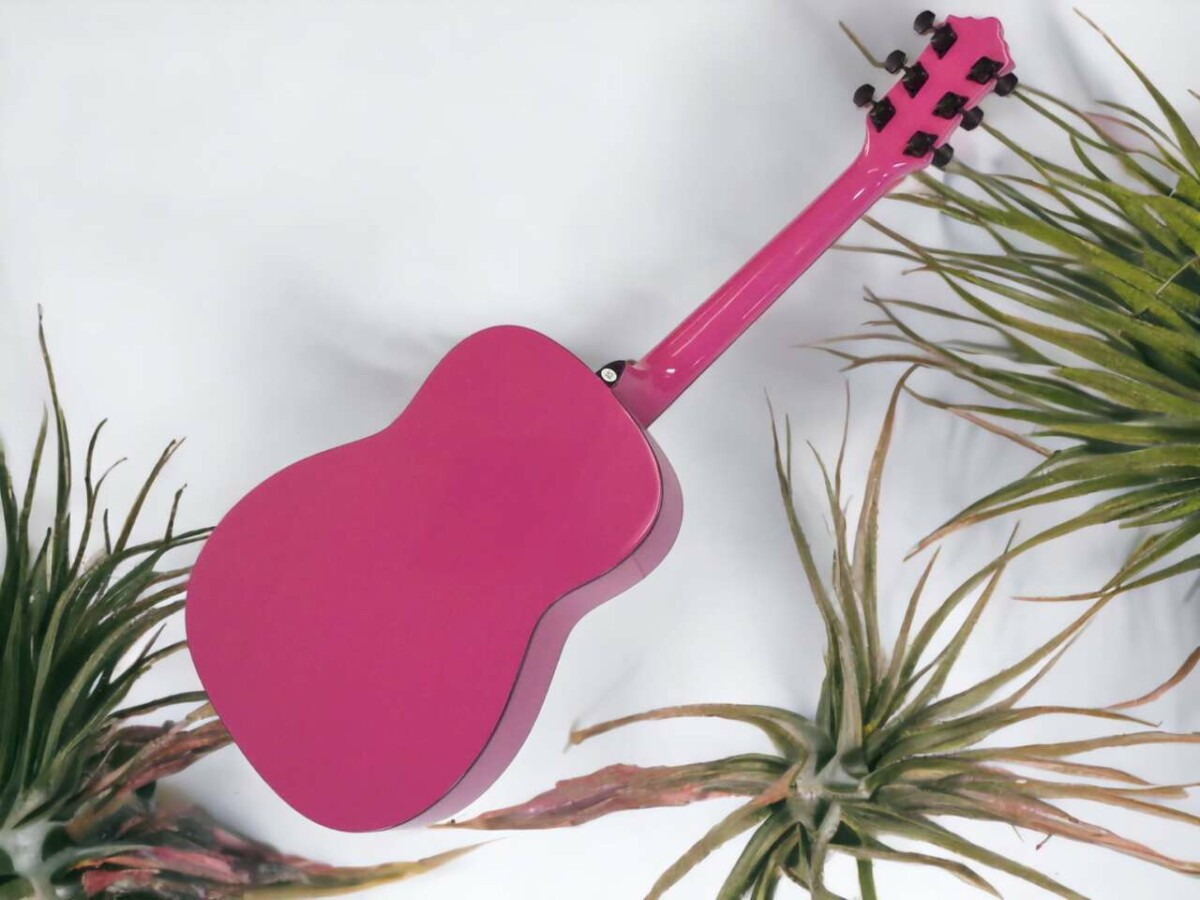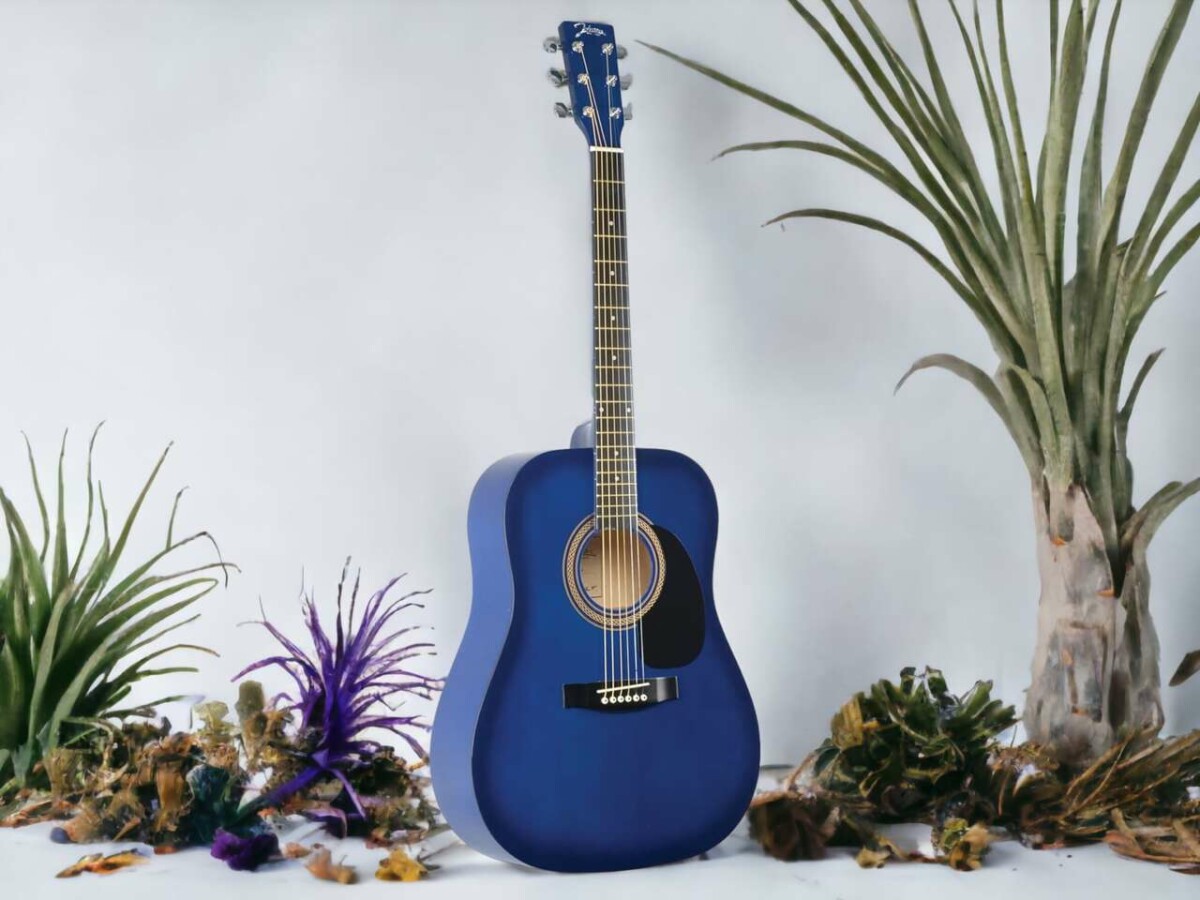Looking to spark a love for music in your 6-year-old? The trick lies in finding the right size guitar.
It’s not exactly a walk in the park, right? But hey, no need to stress, we’re about to dive deep into the realm of kiddie guitars.
From compact ones that are a breeze to handle, to larger ones that pack a punch with their rich sounds, we’re exploring it all.
So, ready to rock this? Together, we’ll find the ideal guitar for your budding rock star.
What Size Guitar Should a 6-Year-Old Use?
Typically, a half-sized guitar (1/2 size) is the perfect choice for a 6-year-old, but their individual size and comfort should also be considered.
Why is it so important to think about the size of a guitar when you’re shopping for a 6-year-old? Well, you’re not just snagging a toy off a shelf; you’re putting money into an instrument that could spark a lifelong love for music. So let’s take a deep dive into why guitar size matters when it comes to a kid’s learning experience.
Picture a little tyke trying to strum a full-sized guitar. It’s like wrestling a bear, right? It’s bulky, hard to manage, and it could put the kid off because they just can’t get a grip on it. A guitar that’s too big can feel like trying to climb Mount Everest to a beginner. That’s why size matters. It can be the difference between your kid falling in love with guitar or giving up on it. The right-sized guitar feels just right, kind of like Goldilocks and the Three Bears. It boosts their confidence and makes them eager to learn and explore music with excitement and curiosity.
Let’s talk about how the size of the guitar impacts the development of proper technique. A guitar that fits a 6-year-old like a glove allows them to hold the neck the right way, hit the frets without stretching too much, and strum with zero hassle. All of this is key to learning the right way to play. With a guitar that’s the perfect size, they’re not just banging on strings, they’re absorbing music, laying the groundwork for their future guitar adventures.
Evaluating the Role of Comfort and Preference in Guitar Selection
When you’re on the hunt for the perfect six-string for your little one, you’ve got to think about more than just the size of the guitar. Oh, sure, size matters, but there’s so much more to it than that. You’ve got to consider how their love for the instrument can actually fuel their desire to practice more.
A guitar that feels right in your kid’s hands, one that they can strum with ease, and one that produces a sound they dig, can truly encourage them to strap it on more often. I mean, the link between how comfortable a child feels with their guitar and their eagerness to play is huge.
Keep these things in mind when you’re shopping for a guitar:
- Weight is a big deal. Your kid should be able to hold the guitar without straining. It should be light enough for them to move their fingers effortlessly across the fretboard.
- Size can be intimidating. If the guitar’s too big, it can make learning a pain and put off practice.
- Looks matter. A cool-looking instrument can get your child psyched to play. It can spark their creativity.
- And let’s not forget about sound quality. The guitar should sound good to your child’s ears. After all, the goal of making music is to create beautiful sounds.
Choosing the right guitar is key in setting your child off on their musical journey. It’s all about finding a guitar that they’re comfy with and that they feel a connection to. Nail this, and you’re setting them up for a lifetime love of jamming.
The Debate: Small Vs. Large Guitars for Young Children
So, you’re caught in a bit of a pickle. You’ve got the option of a smaller 3/4 size guitar that’s a cinch for your kiddo to handle, or you could go for the big leagues with a full-size guitar that’s got a deeper sound and some room for growth. It’s a tough call and there’s no clear cut answer.
So, let’s break it down and look at the pros and cons of a smaller guitar for little rockers, as well as the effect of guitar size on sound and playability, especially for kids around the age of six.
A small guitar can be a great match for a child’s small frame. It’s lighter, easier to grip, and the frets are closer together, which makes it a breeze for tiny hands to get around. These are some serious plus points when they’re just starting their musical journey. If the instrument feels just right, your child is more likely to stick with it and actually enjoy the process of learning.
But wait, it’s not all rainbows and butterflies. A smaller guitar mightn’t hit those deep, full tones like a larger one. The sound quality might take a bit of a hit, but hey, we’re talking about a 6-year-old. At this stage, they’re more about mastering those basic chords and getting the strumming down than blowing people away with their sound.
On the flip side, full-sized guitars do come with their own perks. They offer room to grow, both physically and in terms of their musical skills. But, these big boys can be a handful for little ones to handle, which might lead to some frustration and less enthusiasm to play.
Recommendations for Guitar Brands and Sizes Suitable for 6-Year-Olds
So, you’re on the hunt for a guitar for your 6-year-old, huh? It can be a bit of a maze out there with all the choices, but don’t stress! As a guitar guru, I can vouch for the fact that the right guitar can make or break a kid’s love for music.
Let me break it down for you:
- Swan7 and Belear: These brands are pretty dope. They make small 38-inch guitars that are a perfect fit for little hands. Easy to handle? Definitely. But the catch is, the smaller size mightn’t give you that full-bodied sound you’re looking for.
- Yamaha: These guys are renowned for their killer sound quality. Their guitars are a bit on the larger side, but if your kiddo can manage, it’s worth a shot!
- Baby Taylor or Little Martin: These brands offer a neat compromise with their 3/4 size guitars. The size is kid-friendly, and the sound quality? Not too shabby. It might be just the right mix you’re hunting for.
- Child’s Preference: When it’s all said and done, the best guitar is the one that your child vibes with and feels comfortable handling.
Picking a guitar for a young beginner is sort of a balancing act. You gotta weigh the easy handling of smaller guitars against the richer sound of larger ones. Tiny guitars are great for little hands, but they mightn’t pack the same punch sound-wise. On the flip side, larger guitars can deliver amazing sound, but they can be a bit of a handful for a 6-year-old.
Finding the right guitar is a bit of a tightrope walk, but it’s worth it. After all, you’re laying the foundation for your child’s musical journey, and the right guitar can really set the tone. So, take your time and choose wisely!
Practical Tips: Taking Your Child to a Guitar Store for Size Fitting
Before you pack up the kiddo and hit the guitar store, it’s smart to have a few pro tips in your back pocket. Shopping for a guitar isn’t just a trip to the mall, it’s like an epic adventure, jam-packed with melodies, dreams, and a sprinkle of practicality. It’s a cool blend of the beauty of music and the nitty-gritty of ergonomics, especially when you’re on the hunt for the perfect guitar size for a 6-year-old.
First off, it’s essential to get why starting with a smaller guitar size is a win for young beginners. A mini guitar is easy-peasy to manage and hold, making practice sessions less of a chore. Plus, it means your kid can nail the basics without wrestling with a guitar that’s too big, which could totally put a dampener on their excitement.
Upon setting foot in the guitar store, let your little one roam free. Encourage them to try out different guitars, give the strings a strum, and find what feels just right. Keep in mind, the guitar has to be comfy and easy to play, not just sound good. If your child can snugly get their arms around the guitar, they’re more likely to spend time practicing those chords and tunes.
Be on the lookout for 1/2 or 3/4 size guitars. These sizes are usually a good fit for kids, striking a balance between being easy to play and sounding legit. Don’t hesitate to pick the brains of the store staff for advice. They’ve probably helped a bunch of young, aspiring musicians pick out their first guitar.
Lastly, remember, picking the right guitar is just as crucial as the guitar itself. It’s all about nurturing a love for music and a passion for playing. So, savor the experience and let the magic of music take over!

